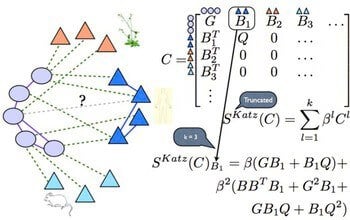Conservatives are less interested than liberals in viewing novel scientific data, according to a psychology researcher at The University of Alabama.
Dr. Alexa Tullett, assistant professor of psychology at UA, recently conducted the project, titled “Is ideology the enemy of inquiry? Examining the link between political orientation and lack of interest in novel data.” The article will be published in the Journal of Research and Personality in August.
In three separate studies, Tullett and colleagues offered participants in both the Deep South and West Coast a chance to view data on three topics: the justness of the world, the efficacy of social safety nets and the benefits of social media. Participants were given no advanced knowledge of what the data would tell them. Tullett found that conservatives were less interested in viewing empirical data than liberals in all three studies. Moreover, conservatives were more skeptical about the value of science compared with liberals. These differences suggest that conservatives and liberals may differ with respect to the kinds of information they find persuasive in the context of political debate, Tullett said.
“One reason for increases in political polarization may be that people aren’t always speaking the same language,” Tullett said. “There seem to be epistemological differences between liberals and conservatives. They disagree about the value of scientific evidence, and if you’re relying on different types of evidence, you’re less likely to come to an agreement.
“Take an issue like gun control: If you were to present people with the issue of gun control, and have anecdotal accounts, expert opinion and scientific studies, our data suggest that liberals would be more likely to care about the scientific study than conservatives. That might have implications for what kind of evidence each pole of the political continuum finds persuasive.”
Tullett said people are exposed to political information in many forms, including expert opinions, historical records and analyses of policies, particularly during elections. But empirical data, Tullett said, is theoretically the most neutral type of information available; objectivity is one of the main goals of the scientific method.
Tullett said she picked political issues that were relatively broad because people’s views on specific topics – like gay marriage or abortion – might be more idiosyncratic. She opted for a nonpolitical topic – social media – to see if participants’ feelings toward empirical data were limited only to political topics.
“There are lots of studies that look at selective exposure — for instance, how likely liberals and conservatives are to choose media sources consistent with their views,” Tullett said. “What is distinct about our study is that we’re asking about information that has unknown content. So conservatives’ relative disinterest in the data is not simply a disinterest in liberal arguments.”
Tullett said the findings are consistent with previously published studies that conservatives are less trusting of the scientific community. She did not find, however, that conservatives were more worried that the data were biased; rather that they were simply less convinced that science is a good way to learn about the world.
“In a context where defensiveness should not be a factor – you’re just being told there’s information relevant to an issue you care about – I didn’t necessarily anticipate that political orientation would be a factor,” Tullett said. “When we originally found the relationship between political orientation and disinterest in this information, I expected that it would be because conservatives were more likely to think the data would undermine their views. But this doesn’t seem to be the case. It just seems that they are less optimistic than liberals about how much scientific data can teach us.”
The psychology department is part of UA’s College of Arts and Sciences, UA’s largest division and the largest liberal arts college in the state. Students from the College have won numerous national awards including Rhodes Scholarships, Goldwater Scholarships, Truman Scholarships and memberships on the USA Today Academic All American Team.
The University of Alabama, a student-centered research university, is experiencing significant growth in both enrollment and academic quality. This growth, which is positively impacting the campus and the state’s economy, is in keeping with UA’s vision to be the university of choice for the best and brightest students. UA, the state’s flagship university, is an academic community united in its commitment to enhancing the quality of life for all Alabamians.
- CONTACT: David Miller, UA Media Relations, 205/348-0825, [email protected]
- SOURCE: Dr. Alexa Tullett, assistant professor, department of psychology, 205/348-0607, [email protected]



We have go to stop thinking with our frontal lobes and get back to the good old lizard brain, knee-jerk amygdala, where music is kept at bay and compassion is a fools game.
oh the irony, a scientific study that finds that CONservatives don’t believe in scientific studies. DUH! that defines conservative.